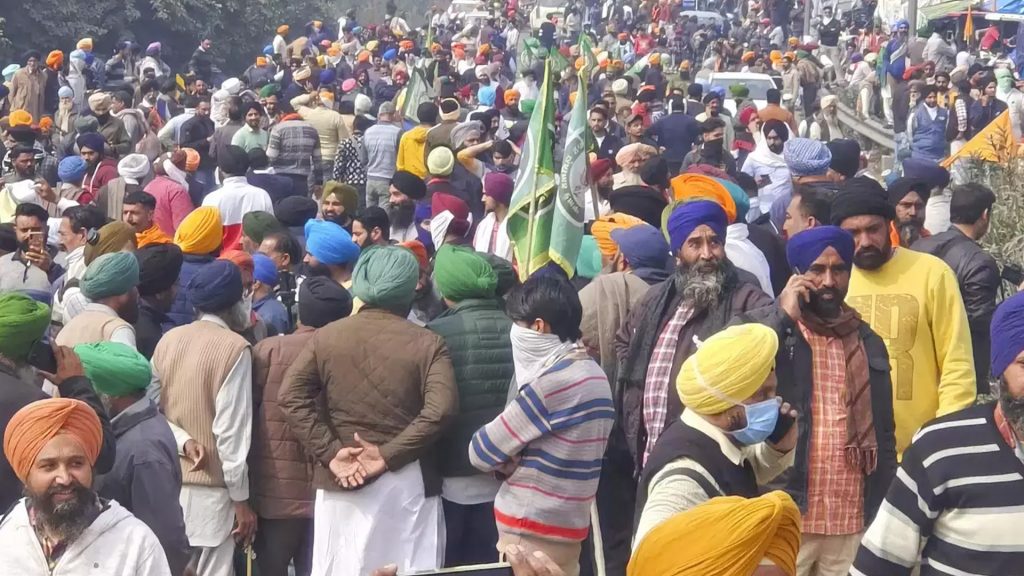Chandigarh: Central government was negotiating with protesting farmer leaders by sending its ministers to Chandigarh just before last year’s Lok Sabha elections, the farmer leaders showed little interest in continuing the talks. Since the announcement of the ‘Delhi Chalo’ movement, farmer unions have been blocking highways at the Shambhu and Khanauri borders adjacent to Punjab starting February 11 of this year. The central government is not indicating any willingness to negotiate.
Political leaders exploiting the farmers’ plight are becoming disheartened. In this situation, a hunger strike has begun. Farmer leader Jagjit Singh Dallewal has been on a hunger strike for 33 days. The Supreme Court has urged them to be hospitalized, but they have refused to go. On December 18, the unions stopped trains at 53 locations in Punjab for three hours, sending the wrong message to the country and the world that there is no conducive environment for travel and business in Punjab. Farmer leader Sarwan Singh Pander has now announced a shutdown in Punjab on December 30.
Punjab’s trade and industry are suffering the most due to the farmers’ movement. In Amritsar, the hotel and tourism business is at a standstill, with more than half of the hotel rooms remaining vacant.
There is no raw material in Punjab. Raw materials have to be brought from other states, and the goods have to be prepared and sent to other states or even abroad. Due to the closure of highways, Punjab’s trade and industry face an additional transportation cost of 15 to 17 percent. During the last farmer’s protest, the cost of transportation also increased significantly because goods carriers had to take longer routes, going towards Delhi, which not only increased the time for transporting goods but also raised the cost of fuel.
In recent developments, the farmers’ unions, led by the Farmer Workers Struggle Committee Punjab and headed by Sarwan Singh Pandher, have announced that no goods, including milk, fruits, or vegetables, should be taken to the markets. They have warned that no vehicles, including carts, rickshaws, and autos, will be allowed to operate in the markets. Long-distance freight, especially to places like Haryana, Jammu and Kashmir, and Uttarakhand, also faces increased freight charges due to longer routes, which in turn increases fuel costs. As a result, once again, the trade and industry sectors are suffering due to the ongoing protest.
Additionally, the farmer leaders are campaigning to stop buses running between Punjab and Uttar Pradesh, Delhi, and other locations. They are urging the leaders of these buses to display posters related to this. The only exceptions are vehicles related to medical services, weddings, interviews, and those traveling to the airport for international flights.
Every day, hundreds of people travel to Delhi and Chandigarh to catch flights, and they rely on buses for this. If these buses are not allowed to operate, people will have to use private vehicles. While farmer leaders argue that these actions are taken in the broader interest of Punjab, to show unity against the central government’s policies, they seem to ignore the long-term impact of these protests on Punjab’s economy. The question arises: What message will this send to the world about Punjab? Will people be willing to invest in Punjab, travel there, or do business? These questions do not seem to concern the protest leaders.
